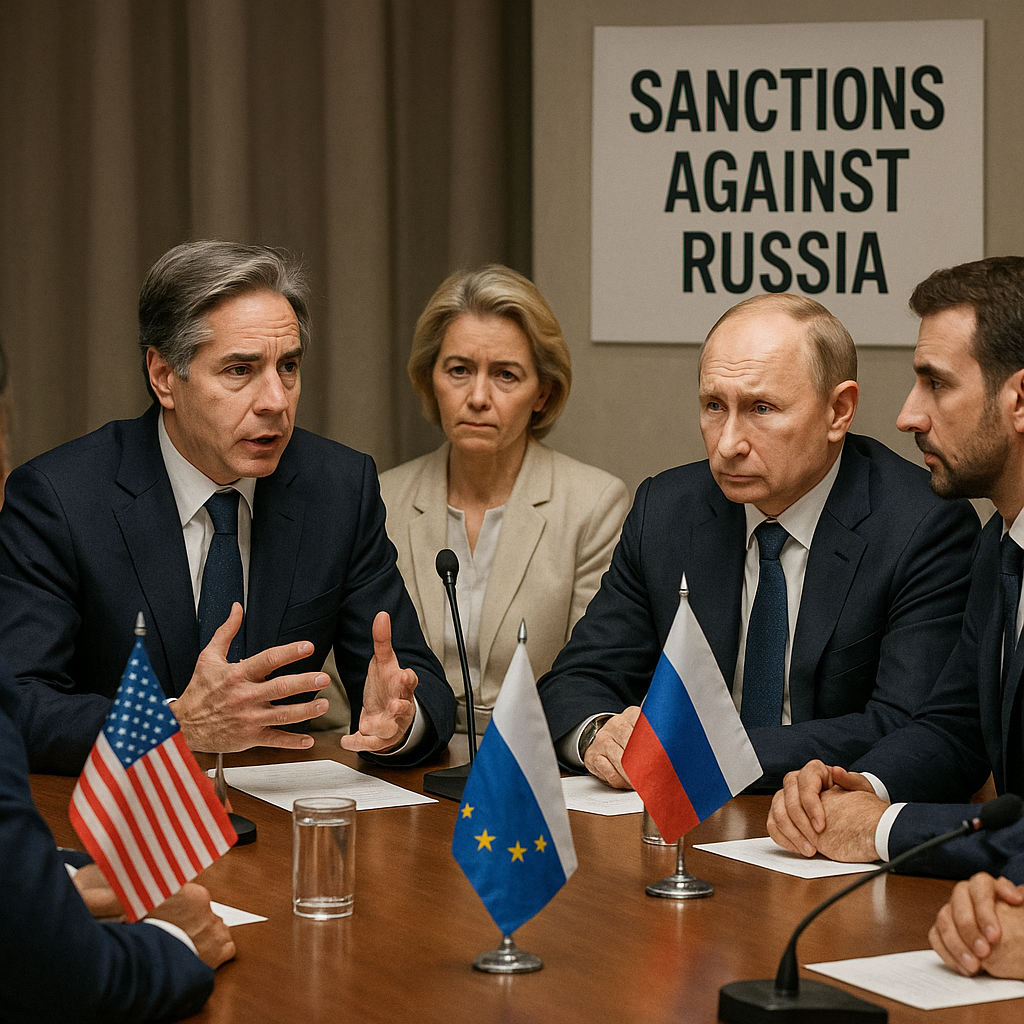
In a recent statement, former U.S. President Donald Trump made headlines by describing Russian President Vladimir Putin as having “gone absolutely crazy” in light of the escalating conflict in Ukraine. Trump’s remarks come amid discussions about potential new sanctions against Russia, reflecting a growing concern over Putin’s unpredictable behavior and its implications for global stability.
Trump’s Characterization of Putin
Trump’s characterization of Putin as “crazy” underscores the former president’s frustration with the ongoing violence in Ukraine, particularly following a series of aggressive military actions by Russia. This strong language is not merely rhetorical; it reflects a deep-seated concern about the implications of Putin’s actions for international security. Trump’s comments come at a time when the situation in Ukraine has escalated, with reports of increased military aggression from Russia, including drone strikes and air raids that have resulted in significant civilian casualties.
The former president’s remarks highlight a critical turning point in U.S.-Russia relations. By labeling Putin’s actions as erratic, Trump is not only expressing his discontent but also signaling to the international community that a robust response is necessary. This characterization serves to galvanize support for a unified stance against Russian aggression, emphasizing the need for Western nations to come together in their response.
Discussion of Potential New Sanctions Against Russia
The potential for new sanctions against Russia is a central theme in Trump’s comments. He indicated that the U.S. and its allies are considering implementing additional economic penalties as a means to pressure Putin into ceasing hostilities. This approach aligns with the broader strategy of using sanctions to hold Russia accountable for its actions in Ukraine.
Sanctions have historically been a tool of U.S. foreign policy, aimed at curbing aggressive behavior by state actors. Trump’s suggestion to increase sanctions reflects a continuation of this strategy, albeit with a renewed urgency given the current circumstances. The former president’s call for sanctions is not without precedent; previous administrations have employed similar measures in response to Russia’s annexation of Crimea and its involvement in the Syrian conflict.
Moreover, Trump’s comments come at a time when the Biden administration is also grappling with how best to respond to Russia’s actions. The discussion around sanctions is particularly pertinent, as economic penalties can have significant implications for both the Russian economy and global markets. Trump’s emphasis on sanctions serves to reinforce the idea that economic pressure is a necessary component of any effective strategy to counter Russian aggression.
Call for a Unified International Response to Russian Aggression
In addition to discussing sanctions, Trump emphasized the importance of a unified international response to Russian aggression. He called for Western nations to present a coordinated front, arguing that a fragmented response would only embolden Putin. This call for unity is particularly relevant in the context of NATO and the European Union, as member states must work together to address the threat posed by Russia.
The need for a unified response is underscored by the historical context of U.S.-Russia relations. In the past, disunity among Western nations has often led to ineffective responses to Russian aggression. Trump’s insistence on solidarity among allies highlights the importance of diplomatic efforts in addressing the current crisis. A coordinated approach not only strengthens the position of Western nations but also sends a clear message to Putin that his actions will not be tolerated.
Conclusion: The Urgent Need for a Robust International Response
In conclusion, Trump’s remarks highlight the urgent need for a robust international response to Russian aggression. As tensions continue to rise, the discussion around sanctions and the characterization of Putin’s actions will remain pivotal in shaping U.S. foreign policy and international relations moving forward. The implications of Trump’s comments extend beyond mere rhetoric; they signal a potential shift in how the U.S. and its allies may approach the ongoing conflict in Ukraine.
As the situation evolves, it will be crucial for the international community to remain vigilant and responsive. The stakes are high, and the need for a unified front against Russian aggression has never been more critical. Trump’s comments serve as a reminder that strong leadership and decisive action are necessary to ensure stability in Europe and beyond.



Leave a Reply